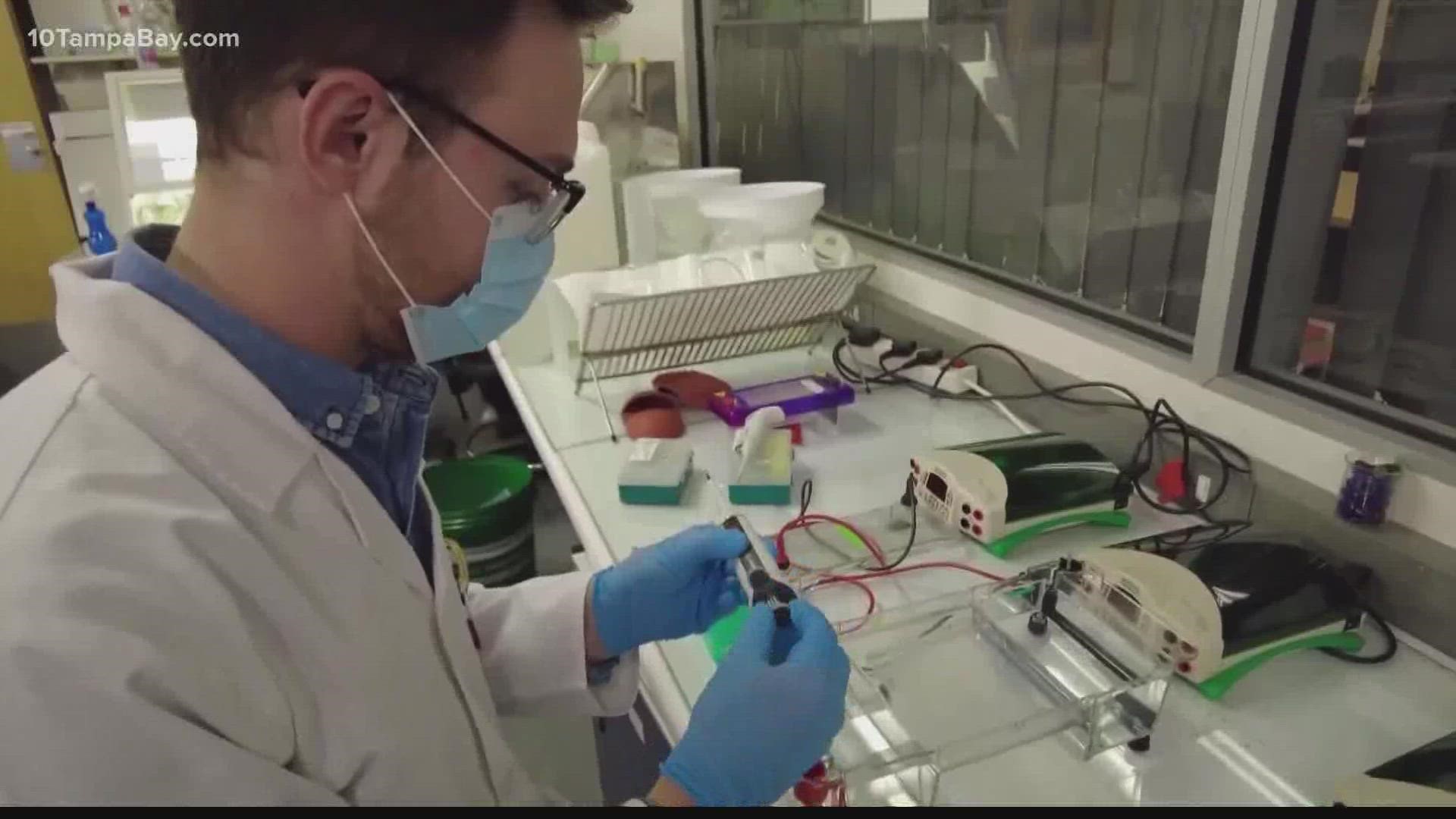TAMPA, Fla. — The World Health Organization has named a new variant of COVID-19, 'omicron.' It definitely rolls off the tongue a lot better than its label, B.1.1.529, but how does WHO create these names?
It's actually pretty simple. No, omicron isn't a made-up word, but it is a letter in the Greek alphabet. The WHO says these labels were chosen after wide consultation and a review of many potential naming systems. It convened experts who are part of existing naming systems, as well as virus taxonomic experts, who are basically pros at virus classification.
According to a report from Reuters, bacteriologist Mark Pallen, who was involved in name deliberations, said the WHO considered other name options like Greek gods and numbers.
After a virus gets its name, the WHO assigns labels to those variants to better organize the impacts of the variant. The WHO breaks it up into Variants of Concern (VOC), Variants of Interest (VOI), and Variants Under Monitoring (VUM).
Variants of Concern include the alpha, beta, gamma, delta, and newly designated variant, omicron. VOCs are defined as variants with increased transmissibility, an increase in virulence or change in clinical disease presentation, and a decrease in the effectiveness of public health measures like vaccines.
Variants, lambda, and mu are considered Variants of Interest. VOIs can have genetic changes, significant community transmission rates, and will appear in clusters in multiple countries.
Eta, iota, kappa, and a few other variants are designated as Variants Under Monitoring. VUMs could affect virus characteristics and may pose a future risk. The impacts of these particular viruses are still unclear.
The CDC has similar labeling for variants but has an additional category: Variant of High Consequence (VOHC). VOHCs are a lot more serious with clear evidence showing prevention measures have significantly reduced effectiveness. Luckily, there are currently no COVID-19 variants in this category.
However, it seems like variants keep popping up. Omicron is the 15th letter in the Greek alphabet, and there are only 24 letters. So, what happens after that?
Well, we really don't know. According to a report from STAT News, Maria Van Kerkhove, the WHO's coronavirus lead, said, "another series like it will be announced."
Until then, you can see all the WHO's variant names here.

